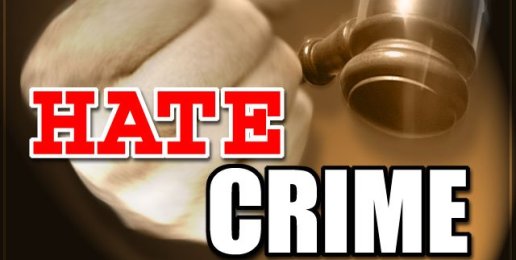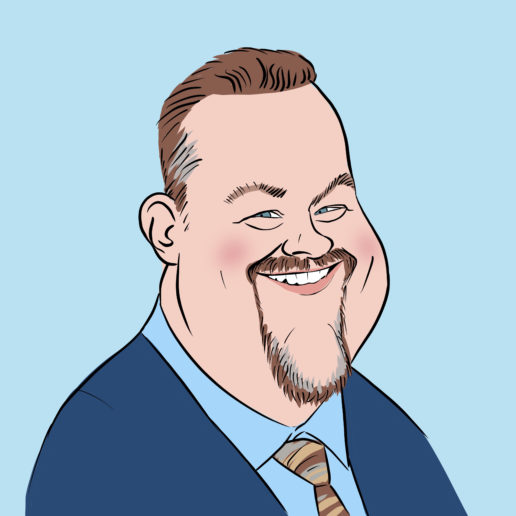
Stories about disturbing crimes in urban areas are nothing new. Almost every day we read or hear reports of murder, assaults, carjacking and robberies. These stories are evidence of a corrupt culture and symptoms of a world far removed from God and His will.
Details about two recent crimes highlight the lunacy of so-called “hate crimes” laws. The first incident happened a few weeks ago in Chicago when three twenty-something year-old men were arrested for attacking another man on a CTA train. According to news reports, these men were originally charged with misdemeanor battery, but because specific slurs were used during the attack, the charges were upgraded to felony hate crime.
The second incident involves the murder of three people in the Chicago suburb of Darien. Speaking to reporters about this heinous crime, DuPage County State’s Attorney Joe Birkett said, “this crime was born out of hatred.” Authorities report that a custody dispute over a 13-month-old boy was the motive for the killings. Two men, both in their twenties have been charged with the death of this Darien family.
Despite the fact that the State’s Attorney clearly and succinctly labeled this heinous crime a “hate crime” — additional charges were not filed.
Let me pause here for an important disclaimer: My criticism of “hate crime” laws in no way, shape or form suggests approval of criminal activity or verbal assaults. If the perpetrators of either of these crimes are tried and found guilty — they should be punished to the fullest extent of the law for that crime. The beliefs or feelings or hurtful words of the perpetrators should not affect the specific charges or the sentences.
Special Protection for Some
These two cases not only call into question the purpose of “hate crime” laws, but underscore the disproportionate and subjective ways they could be applied.
First, how many of the 120 so-called “hate crimes” that occurred in Illinois during 2008 were perpetrated by members of that same protected class? For example — are there any “hate-crimes” that include black-on-black crime by African-Americans who used the “n” word? How about similar cases involving Hispanic, Asian or other ethnic groups?
If not, why not? If it simply takes a verbal assault during the commission of a crime to warrant an additional criminal charge of “hate” — as we see here in the CTA case — then every gang-related assault or murder in which racially or ethnically charged language is used should warrant additional “hate crime” charges, shouldn’t they? Liberal activists want us to believe that special government protection through “hate crime” laws is needed to better protect certain minority groups from the intolerant and bigoted majority.
This brings me to my second point. If lawmakers want to use special protection laws to protect only certain groups of people — a select few — aren’t they in fact discriminating against everyone else? Why is this okay? State Attorney Birkett clearly identified “hate” in the triple murder in Darien, but since it is not the right kind of “hate,” no additional charges will be filed against the alleged killers.
Yet another dimension to the problem is that there is evidence that “hate crime” laws have been used against people of faith who merely dared to question or oppose the homosexual “rights” political agenda. In such cases, these pastors or church members were charged with a hate crime for politically incorrect speech, rather than for any physical harm or threat against persons engaging in homosexuality. (See ‘Philadelphia 11‘ story.)
Two-Tier Justice
“Hate crime” laws set up a two-tier system of justice, which in my opinion, makes them unconstitutional. How can we have “equal protection” for all (14th Amendment of the U.S. Constitution) if we legislate “special protection” for some? I do not think we can.
What’s amazing is that if three men assault another man using homosexual slurs, the crime will get special government attention as a “hate crime.” But if two men carefully plan and carry out the murder of a family of three, that is not considered a “hate crime” and does not get the same special government attention because these victims are not part of a specially protected group.
And that is the bottom line. “Hate crime” laws set up a politically correct hierarchy of victims and provide prosecutors and judges with a tool to manipulate and coerce.
Every crime should be prosecuted equally.
Prosecute crimes-not thoughts and words
Violence against any person should be punished to the fullest extent of the law, including violent crimes against people because they self-identify as “gay.” But “hate crime” legislation makes politically incorrect beliefs and language a basis for harsher treatment in criminal proceedings.
Perpetrators of crimes should be punished for their acts, but society ought not engage in the dangerous practice of criminalizing thoughts, feelings, or words that may or may not underlay the commission of a crime.























